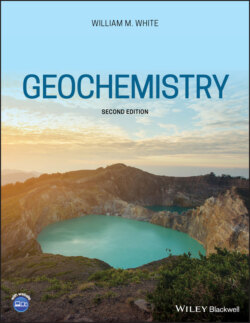Читать книгу Geochemistry - William M. White - Страница 16
1.4.2 The scientist as skeptic
ОглавлениеAlthough we often refer to scientific facts, there are no facts in science. A fact, by definition, cannot be wrong. Both observations and theories can be, and sometimes are, wrong. Of course, some observations (e.g., the Sun rises each morning in the East) and theories (the Earth revolves around the Sun) are so oft-repeated and so well established that they are not seriously questioned. But remember that the theory that the Sun revolves around the Earth was itself once so well established that Galileo was tried and sentenced to house arrest for questioning it.
One of the ways in which science differs from other fields of endeavor is that in science, nothing is sacred. It is best to bear in mind the possibility, however remote, that any observation or theory can be wrong. Conversely, we must also accept the possibility that even the wildest observations and theories might be correct: in quantum physics, for example, there is a great range of well-replicated observations that can only be labeled as bizarre (see, e.g., Gribbin, 1984). “Intuition” plays a greater role in science than most scientists might be willing to admit, even though scientific intuition is often very useful. Nevertheless, our intuition is based largely on our everyday experience, which is very limited compared with the range of phenomena that science attempts to understand. As a result, our intuition often deceives us. Sometimes we must put it aside entirely. That a clock will run slower if it moves faster, or that an electron can behave as both a wave and a particle, or that continents move great distances, are all very counter-intuitive observations, but all are (apparently) correct. Thus, skepticism is one of the keys to good science. In science, never totally believe anything, but never totally disbelieve anything, either.
